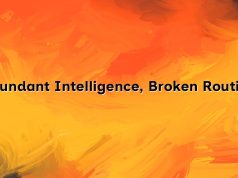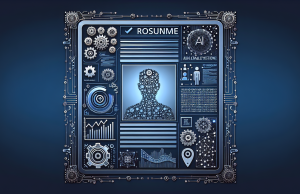As the dawn of a new decade approaches, we find ourselves on the cusp of a monumental shift in how work is perceived, performed, and valued. This sea change, driven by rapid technological advancements, a newfound emphasis on work-life balance, and the global aftermath of a pandemic, has propelled us into what could be described as ‘The Great Reimagining’ of the worker-workplace dynamic.
From cubicles and commutes to connectivity and cloud offices, the traditional workplace is being dismantled and reassembled in a form that, just years ago, would have been unimaginable. Remote work, once seen as a perk, has emerged as a mainstay, championed by a workforce prioritizing flexibility and autonomy. The gig economy burgeons, offering a buffet of short-term engagements as opposed to a full-course career meal at a single establishment. Artificial intelligence (AI), ever the double-edged sword, automates routine tasks while simultaneously generating new domains for human endeavor and creativity.
These developments are not merely altering job descriptions; they’re shifting the very lexicon of employment. Gone are the days when a ‘job for life’ was the gold standard of employment security and success. Today’s workers, especially the digital natives, are crafting mosaic careers—dynamic, adaptable, and reflective of individual passions, skills, and lifestyles.
Yet, this renaissance of the work-ethos is not without its challenges. Leadership paradigms are undergoing their own evolution to keep pace with the fast-changing expectations of a modern workforce. Leaders must now be adept at managing remote teams, fostering cultures of inclusivity and innovation, and sustaining engagement without the benefit of physical proximity. The ability to lead with empathy and understand diverse employee needs is more critical than ever.
In this milieu, some organizations are emerging as pioneers, setting the benchmarks for others to follow. These companies understand that employee satisfaction and productivity are not chained to the desk but tethered to a sense of purpose, community, and well-being. They have crafted environments that are not only responsive to the current zeitgeist but also anticipative of future work trends.
As part of this introspective piece, we delve into conversations with thought leaders, psychologists, and futurists to unearth the psychological and sociological undercurrents sculpting the work landscape. How, for instance, does the gig economy influence individual identity and community cohesion? In what ways is AI altering our perception of human potential and value?
The answers to these queries and more pave the path for a set of strategic recommendations aimed at equipping employers and employees alike for the journey ahead. Employers are encouraged to cultivate agility and continuously re-evaluate how work gets done. Employees, on the other hand, are prompted to embrace lifelong learning and cultivate resilience.
As we navigate this great reimagining, it becomes evident that the future of work, while threaded with uncertainties, is replete with opportunities for those willing to adapt, innovate, and lead with humanity at the helm. This article does not just invite an examination of emerging work trends; it beckons readers to reflect on their own career trajectories and the role they wish to play in the unfolding narrative of work.

























